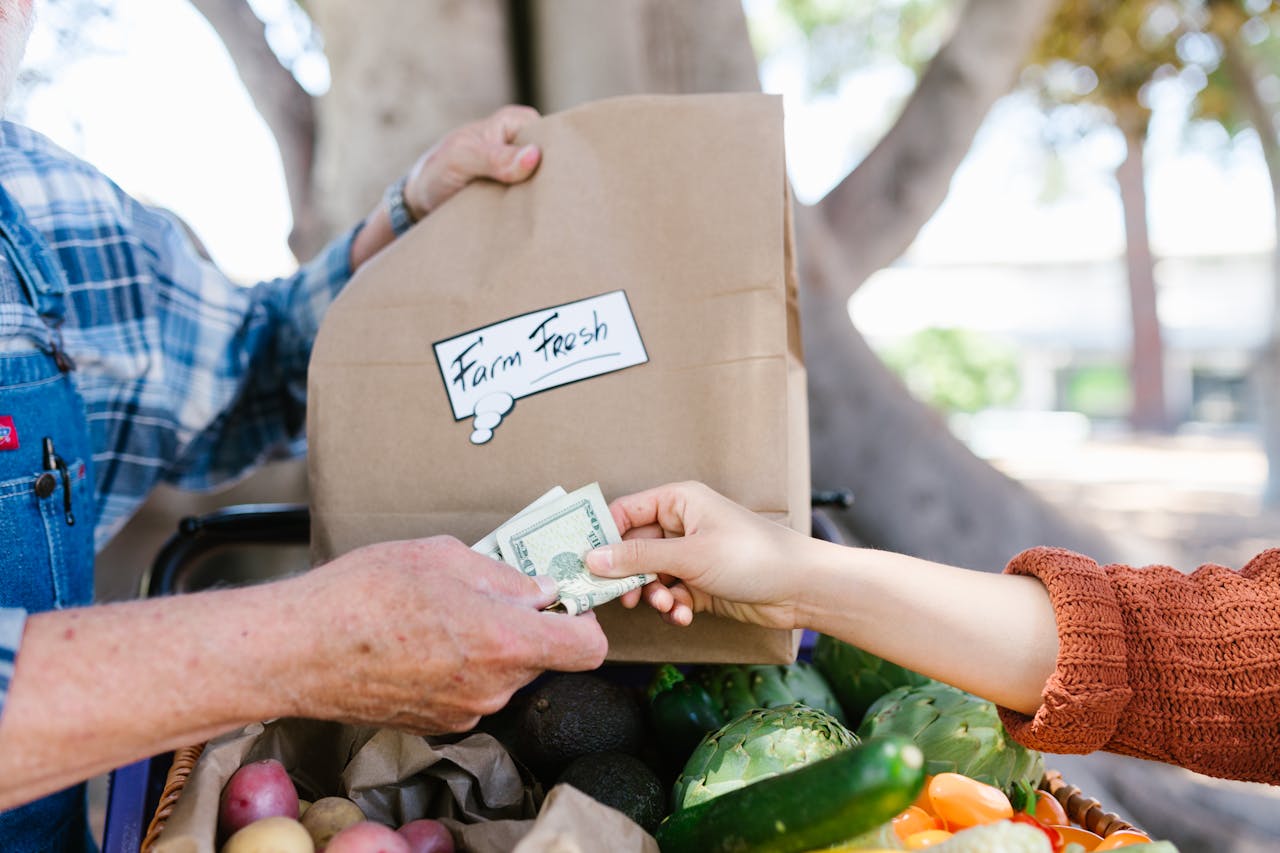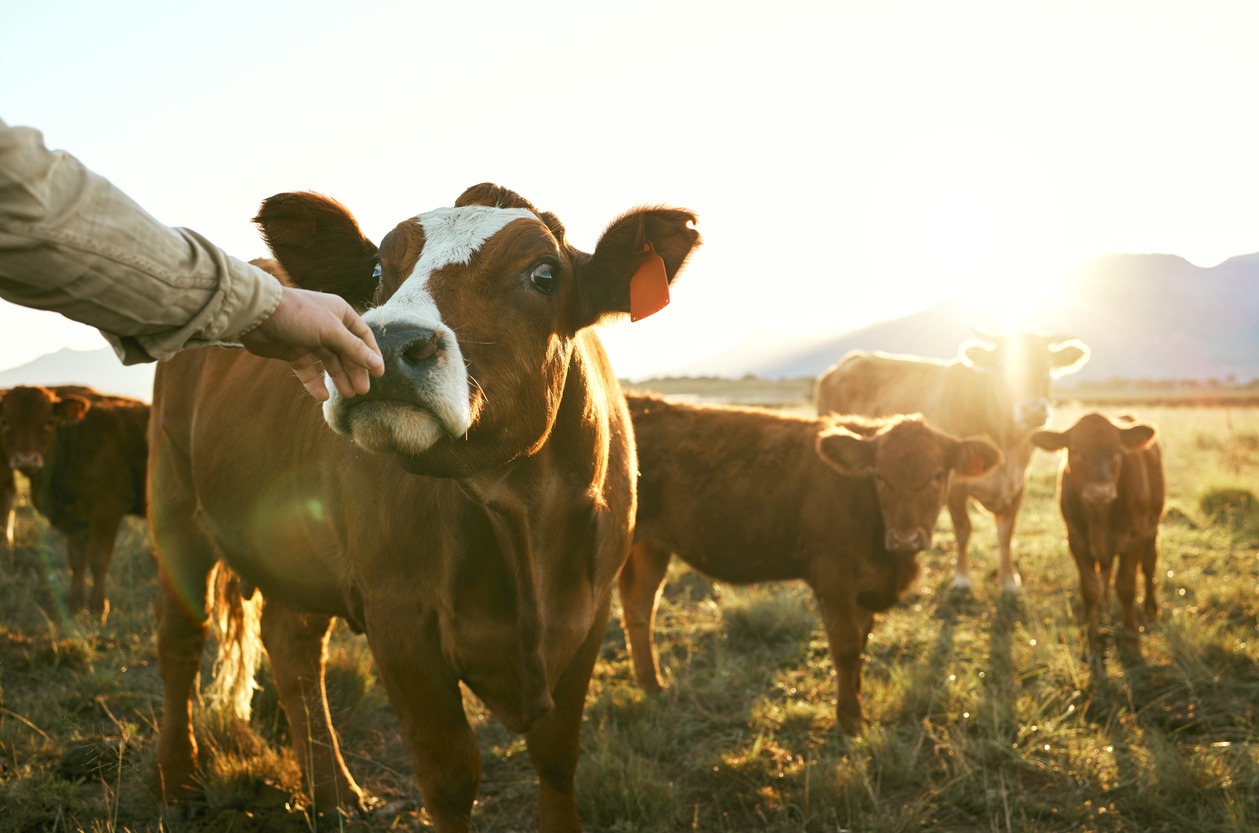Healthy Habits for Homesteaders and Preppers

Homesteading and prepping demand resilience, resourcefulness, and self-reliance. But while planning food stores or practicing survival skills, one often-overlooked cornerstone of preparedness is health. A healthy body and mind are essential for meeting the physical and mental challenges of a self-reliant lifestyle. By adopting practical, sustainable habits, you can ensure that you're not only surviving but thriving in your journey as a homesteader or prepper.
This guide will cover everything from nutrition and fitness to restful sleep, mental resilience, and long-lasting habits to keep you ready for whatever comes your way.
1. Nourishing Your Body for Homesteading
Your body is your most critical tool as a homesteader or prepper. Fueling it with the right nutrients ensures you can meet the demands of daily tasks, from cultivating crops to chopping wood.
Eat for Energy and Strength
A balanced diet rich in proteins, fruits, vegetables, and whole grains is the foundation of good health. Proteins, whether from eggs, beans, or lean meats, help repair muscles and support overall strength. Fresh fruits and vegetables provide essential vitamins and antioxidants, while whole grains offer sustained energy throughout the day.
If you grow your own food, consider focusing on nutrient-dense crops like sweet potatoes, spinach, beans, and squash. These staples are packed with essential vitamins and minerals, versatile in cooking, and long-lasting. If you have space, raising backyard chickens for eggs or goats for milk can add protein and healthy fats to your diet.
Mastering Food Preservation
Preserving your harvest is a must for long-term health and preparedness. Techniques like canning, fermenting, and dehydrating allow you to stockpile nutritious food for lean seasons. Fermented foods, such as sauerkraut or kimchi, are especially valuable for gut health, which directly impacts your immune system and energy levels.
If you’re new to preservation, start with basic methods like freezing or drying herbs and fruits. Over time, progress to more advanced techniques such as vacuum-sealing or pressure canning. The ability to control your food supply reduces dependency on stores and adds peace of mind.
Stay Hydrated
Dehydration can sap your energy and affect your performance, so it’s crucial to drink enough water daily. A general guideline is to drink half your body weight in ounces of water. For instance, if you weigh 150 pounds, aim for 75 ounces of water per day.
If you rely on natural water sources like rain catchment systems or wells, always ensure the water is safe to drink. Consider using filters, boiling water, or chemical treatments to eliminate contaminants. Hydration is critical not just for survival but for maintaining mental clarity and physical stamina throughout the day.
2. Fitness for Self-Reliance

Homesteading isn’t just a lifestyle—it’s a workout. From hauling water to splitting logs, physical tasks demand strength, endurance, and flexibility. Staying fit ensures you can tackle these challenges without injury or burnout.
Build a Balanced Routine
Experts recommend at least 150 minutes of moderate aerobic activity or 75 minutes of vigorous activity per week, plus two days of strength training. This might sound daunting, but on a homestead, you’re already engaging in many of these activities.
Cardio can include brisk walks across your property, hiking with a pack, or shoveling snow. Strength training might come from lifting heavy objects like feed bags or firewood. Flexibility exercises, such as stretching or yoga, can be done in the morning or after long hours of bending and lifting.
Incorporate Fitness into Daily Life
Many homesteading chores double as workouts, so there’s no need to carve out extra time for exercise. Transform routine activities into fitness opportunities. For example, chopping wood not only warms your house but also strengthens your arms and shoulders. Gardening involves squatting, bending, and pulling motions that build lower body strength and flexibility.
To add some fun, challenge yourself with small goals: How quickly can you haul a full wheelbarrow of compost? How many trips can you make carrying water buckets in one session? Turning tasks into games keeps things engaging and helps you push your limits.
Prevent Injuries
Injury prevention is vital when you’re your own workforce. Warm up before tackling heavy tasks by doing light movements to loosen your muscles. Afterward, take time to stretch and cool down to prevent stiffness. If you’re unsure about proper lifting techniques, educate yourself to avoid straining your back or joints.
Additionally, pay attention to how your body feels. Rest when needed—your health is worth more than powering through exhaustion.
3. Restful Sleep on the Homestead

A hard day’s work deserves a good night’s sleep. Quality sleep is vital for energy, focus, and recovery. Without it, even the most prepared homesteader can falter.
Create a Sleep-Friendly Environment
Optimize your sleeping area for rest. Blackout curtains block out light, while earplugs or white noise machines can minimize distractions. If your homestead has livestock, ensure their nighttime routines don’t disrupt yours—check fences and pens early so you can relax in the evening.
Maintain a cool bedroom temperature, as lower temperatures promote better sleep. If heating your room in winter is necessary, consider natural solutions like heavy blankets or hot water bottles instead of overheating the space.
Build a Relaxing Routine
Establish a bedtime routine to signal your body that it’s time to unwind. Herbal teas made from chamomile or valerian root can help you relax. Pair this with light stretches or meditation to ease tension built up during the day.
Resist the urge to scroll through your phone or tablet before bed. The blue light emitted by screens interferes with your circadian rhythm, making it harder to fall asleep. Instead, opt for quiet, soothing activities like reading a book or journaling.
Prioritize Sleep Quantity and Quality
Aim for 7-9 hours of sleep each night. This is the optimal range for recovery and mental clarity. While it might be tempting to burn the midnight oil during planting or harvest season, remember that sleep is the foundation of productivity. Plan your day effectively so you can rest without guilt.
4. Cultivating Mental Resilience
Homesteading and prepping often come with uncertainties. Mental resilience—the ability to adapt and thrive in the face of challenges—is just as important as physical strength.
Practice Mindfulness
Mindfulness helps you stay calm and focused during high-stress situations. Simple techniques like deep breathing, observing your surroundings, or reflecting on positive aspects of your day can help lower stress levels.
For example, if a critical tool breaks during an important project, mindfulness can help you pause, assess the situation, and find a solution without feeling overwhelmed. Daily practices like meditation or prayer can strengthen your mental resilience over time, giving you the tools to stay grounded even in the toughest situations.
Strengthen Through Nature
Spending time outdoors isn’t just about completing chores—it’s a chance to connect with the environment and recharge mentally. Activities like walking through your fields, listening to birdsong, or sitting under a tree can have profound calming effects.
Consider combining tasks with mindfulness. While gardening, focus on the feel of the soil or the colors of your crops. These small moments of connection to nature can reduce stress, improve mood, and enhance your mental clarity.
Build a Support Network
Even the most self-reliant individuals need support. Building relationships with other homesteaders or preppers can provide valuable advice, encouragement, and camaraderie.
Attend local meetups, join online forums, or participate in skill-sharing workshops. Not only do these connections help you learn, but they also create a sense of community. When challenges arise, knowing you have others to turn to can be a great comfort.
5. Building Lasting Healthy Habits

Habits are the building blocks of a successful homesteading lifestyle. By cultivating routines that support your physical and mental well-being, you prepare yourself for the long haul.
Start Small and Stay Consistent
Focus on one habit at a time. For instance, start with drinking more water daily. Once that becomes second nature, move on to a fitness routine or a bedtime ritual. Small, manageable steps are key to making lasting changes.
Use Tools to Stay on Track
Habit trackers, journals, or even reminders on your phone can help you stay consistent. Write down your goals and celebrate milestones, like completing a month of consistent exercise or successfully preserving a new batch of food.
Accountability partners, whether they’re family members or fellow homesteaders, can also keep you motivated. Share your goals with someone who can encourage you and provide gentle nudges when you need them.
Adapt to Challenges
Life on the homestead isn’t predictable, so flexibility is essential. If bad weather interrupts your outdoor workout plans, switch to an indoor yoga session. If you miss a day of stretching or journaling, don’t be discouraged—simply pick up where you left off.
6. Preventive Health Practices

Staying healthy isn’t just about responding to problems—it’s about preventing them. Proactive health care ensures you’re always ready to tackle challenges.
Regular Check-Ups and Vaccinations
Don’t neglect regular medical check-ups for yourself and your family. Early detection of health issues can prevent more significant problems down the line. If you have livestock, schedule periodic veterinary visits to keep your animals healthy as well.
First Aid Readiness
A well-stocked first aid kit is essential for homesteaders and preppers. Include items like bandages, antiseptics, pain relievers, and tools for addressing minor injuries. If you’re working with livestock, add supplies for treating animals to your kit.
Strengthen Immunity
Immunity-boosting practices, such as eating nutrient-dense foods, staying active, and managing stress, play a critical role in staying healthy. Consider incorporating natural remedies like elderberry syrup, ginger tea, or garlic into your routine to ward off illness.
Hygiene is equally important, especially when working with soil or animals. Wash your hands regularly and keep your workspace clean to minimize exposure to harmful bacteria.
7. Adapting to Seasonal Changes
Homesteading is deeply tied to the seasons, and your health habits should reflect these changes.
Stay Active Year-Round
Adapt your fitness routine to the weather. During winter, focus on indoor exercises like stretching, bodyweight workouts, or using resistance bands. In the summer, work early in the morning or late in the evening to avoid extreme heat.
Seasonal chores can also keep you active. In winter, shoveling snow and hauling firewood provide excellent workouts. In summer, gardening and building projects keep your muscles engaged.
Protect Your Mental Health
Seasonal changes can affect mental health. Shorter daylight hours in winter can lead to feelings of sadness or low energy. Combat this by increasing your exposure to natural light, even if it’s just a short walk outside.
Engage in enjoyable indoor activities, such as crafting, baking, or learning new skills, to stay productive and uplifted during colder months.
Seasonal Nutrition
Adjust your diet to the season’s offerings. In summer, enjoy fresh fruits and vegetables from your garden. In winter, rely on preserved foods like canned soups, dried beans, and frozen vegetables. Eating seasonally ensures you’re getting the freshest and most nutritious options available.
Conclusion
Healthy habits are the foundation of a thriving homesteading and prepping lifestyle. By nourishing your body, staying active, prioritizing rest, and cultivating mental resilience, you equip yourself for both daily tasks and unexpected challenges.
Take small steps today—whether it’s drinking more water, starting a fitness routine, or spending a quiet moment in nature—and watch as these habits transform your self-reliance. Your journey as a homesteader or prepper isn’t just about survival; it’s about thriving. Start now, and reap the benefits for years to come.




